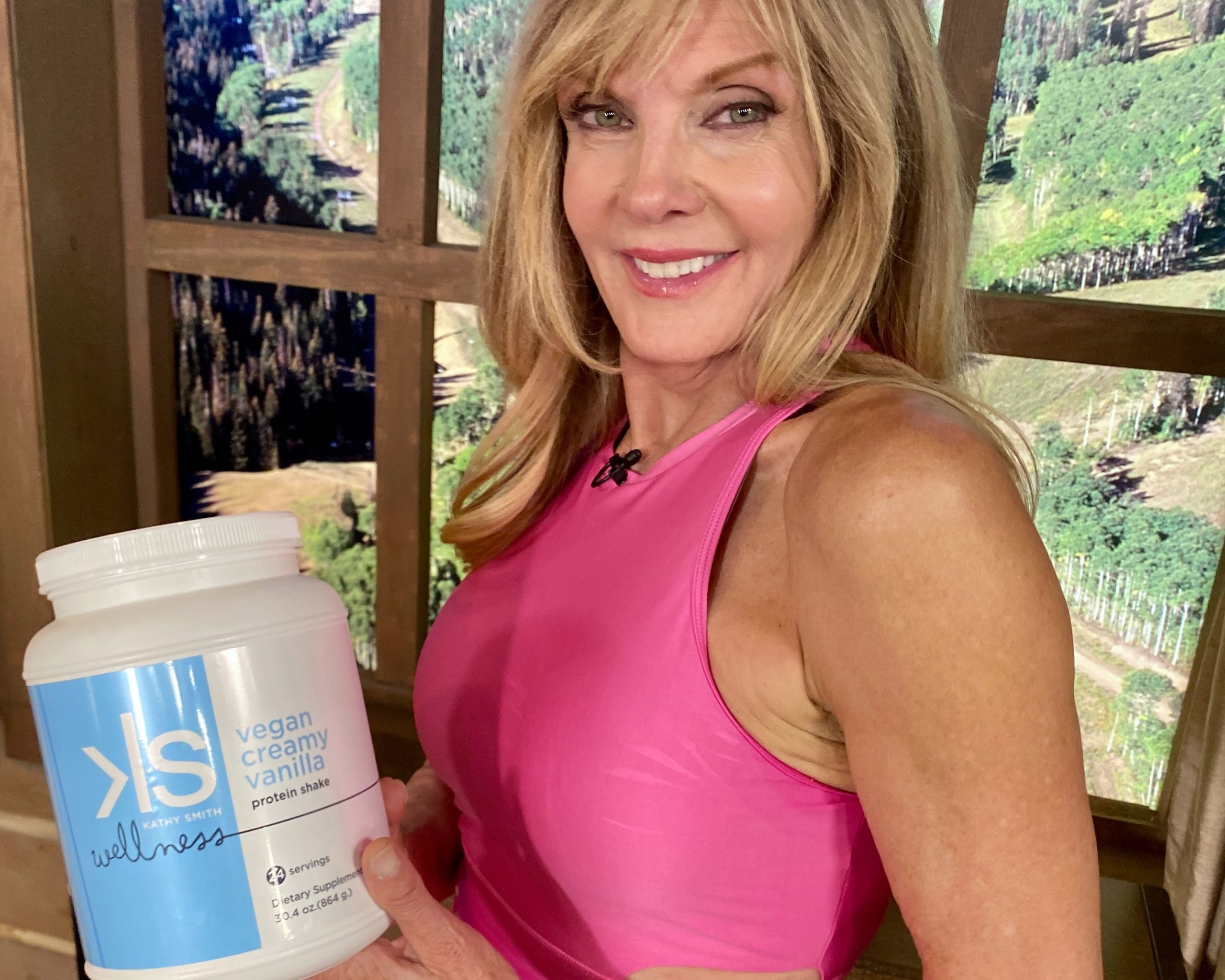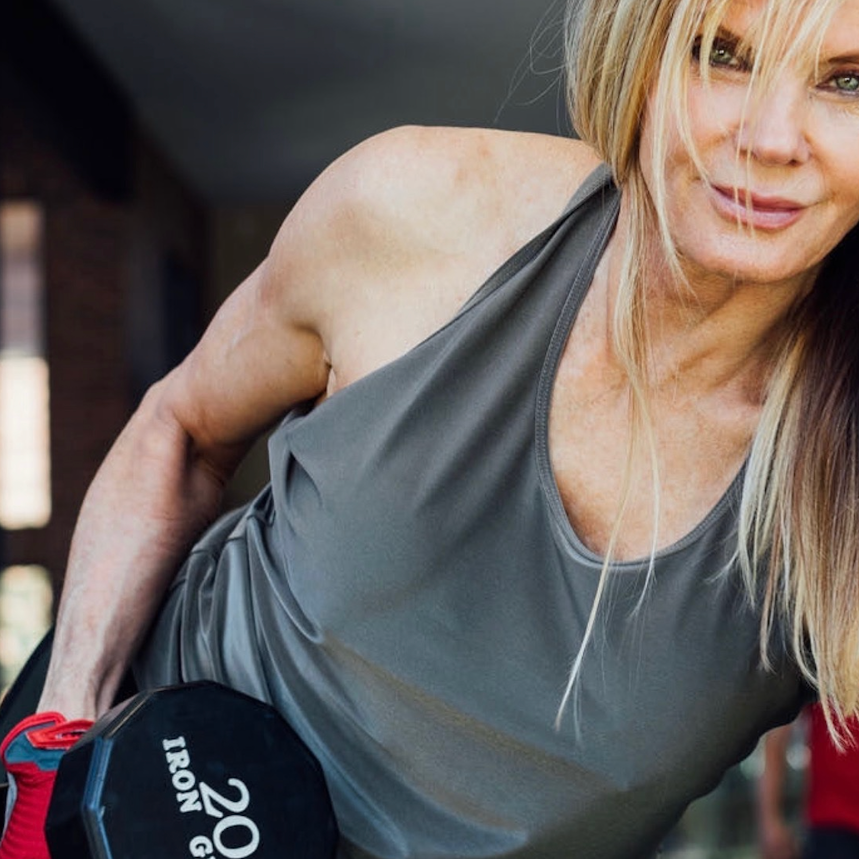A Date With the Toilet
To Listen, Just Click Play!
Hi {{ first_name|default:’there’ }},
Two weeks ago, the toilet and I became BFFs. Yes, it was time for my colonoscopy. Need I say more?
Before the procedure, I followed three days of a low fiber diet, which means avoiding fruits, vegetables and grains (what’s a girl to do 😜 ). Then, one day before the grand event, I mixed a packet of not-so-delicious powder into water. The combination became a nuclear laxative and voilà, the toilet bowl and I bonded.
Although there’s nothing more uncomfortable than the thought of having somebody poke around in that area, getting colonoscopies is vastly important.
March is Colon Cancer Awareness month, and the health of your microbiome plays a major role in how well your your bowel functions. Today’s guest on The Art of Living podcast is gastroenterologist Dr. Will Bulsiewicz to help you learn how to identify weaknesses in the gut, discover what habits lead to a poor microbiome, and uncover valuable information that you can learn from your bowel movements.
Colon cancer is extremely deadly, with more than 50,000 expected to pass from colon cancer this year. That makes it the second most deadly cancer out there.
It doesn’t need to be this way. Not all countries struggle with colorectal cancer the way that Americans do. Experts think it’s the Western diet. Colorectal cancer appears to be primarily driven by dietary choices. But simply changing your diet does not adequately reduce your risk, as we’re about to learn.
Here are 4 ways that you can reduce your risk of colorectal cancer from Dr. Will Bulsiewicz. If you follow these suggestions, Dr. B believes you can reduce your risk by at least 90%.
I can’t emphasize this enough — COLONOSCOPY SAVES LIVES.
I see it every week in my gastroenterology practice. Just yesterday I had a patient who was less than 50-years-old who had two very large polyps that I painlessly removed. Those polyps were precancerous and on a path that would have turned them into cancer very shortly. By painlessly removing them during colonoscopy, she is safe and that risk has been completely eliminated.
The bottom line: If she never had a colonoscopy, she would have had colon cancer, it was only a matter of when.
One of the problems with colorectal cancer is that it usually doesn’t cause symptoms. There’s generally no symptoms from a precancerous polyp or even from early cancer. By the time symptoms settle in, it’s generally a late stage cancer and the opportunity to cure it has already been lost.
We can’t wait for the onset of symptoms.
This is why we do colonoscopy based upon age and not symptoms. Our current recommendation in the US is to do colonoscopy once every 10 years beginning at age 45. Those recommendations change if you have a family history of colorectal cancer or an advanced polyp in a first degree relative (parent, sibling, child). Make sure to check with your doctor and get checked as early as possible.
The younger the better as far as I’m concerned. Once you get that first colonoscopy done, you have the protection that it affords you and it’s no longer an unknown possibility.
The Plant Fed Gut will be opened again soon…
Red and processed meats have consistently been connected to increased risk of colorectal cancer.
There are actually multiple mechanisms by which this happens:
Carcinogenic polycyclic aromatic hydrocarbons
Nitrosamines and heterocyclic amines
Heme iron causing pro-oxidant effects
High saturated fat in the diet shifting the gut microbiome to produce more secondary bile salts
It’s no wonder that after a complete review of the available evidence (over 800 studies) the World Health Organization’s International Agency for Research on Cancer labeled processed meat as carcinogenic to humans and red meat as probably carcinogenic to humans.
The Plant Fed Gut will be opened again soon…
Plants have it all — vitamins, minerals, antioxidant polyphenols, phytochemicals, and of course (my favorite) fiber. 🌱
Each of these can contribute to protection from colorectal cancer!
For example, both calcium and magnesium have been connected to reduced risk. Some of the phytochemicals that may offer protection include curcumin from turmeric, epigallocatechin gallate in green tea, resveratrol in red grapes, and sulforaphane in cruciferous vegetables.
Taken together, it comes as no surprise that in the Adventist 2 study they found a statistically significant association between a vegetarian diet and reduced risk of colorectal cancer.
Please bear in mind, even with these dietary changes the risk reduction was only 22%. I absolutely believe that a plant-based diet is the way to go and a huge part of the solution to our colorectal cancer problem. But this can’t be the only solution… No matter what dietary pattern you follow, it’s important to still get your colonoscopy done.
The Plant Fed Gut will be opened again soon…
You know I had to talk about my most favorite nutrient. How could I not? The evidence is overwhelming!
In a systematic review and meta-analysis of 185 prospective studies compiling 135 million person-years of data (think about that… the entirety of human existence is just 3 million years), Dr. Andrew Reynolds found that dietary fiber was significantly associated with reduced risk of developing colorectal cancer.
Further, he found a dose response relationship, meaning that as you increase your fiber intake you get more and more benefit. For every 8 grams of fiber, there was an 8% reduction in colorectal cancer incidence.
Amazing, right?
It makes complete sense. Dietary fiber is the preferred fuel of our gut microbes. When we feed them, they reward us with short chain fatty acids. Butyrate may be the key here. When we have butyrate, it protects us from colorectal cancer. When we lack butyrate, we lose that protection.
And here we are, 95% of Americans aren’t even getting the minimum recommended amount of fiber.
Fiber Fueled is back in stock on Amazon!
It’s been long, painful wait, but my book FIBER FUELED is back in stock on Amazon!
If you want to take a deeper dive into the concepts from this email, learn how to optimize your gut microbiome and orient it towards optimal human health…
Grab your copy before it’s out of stock again and let’s start your journey together! 🤝
If you have thoughts about these 4 methods for reducing your risk of colorectal cancer or you’re planning to make changes in your routine after reading this — or you just want to say “Hi!” — let me know @theguthealthmd on Instagram!





